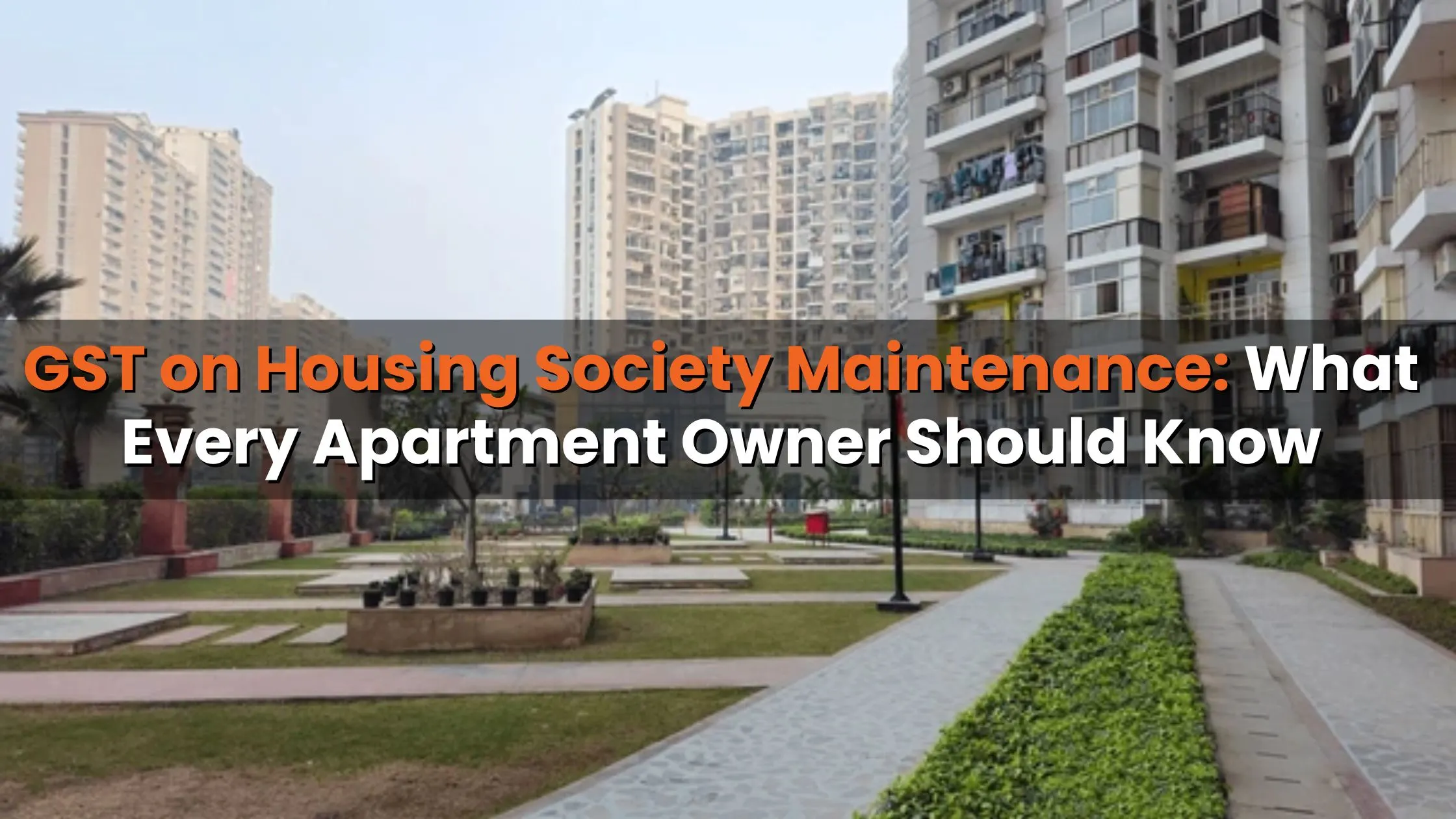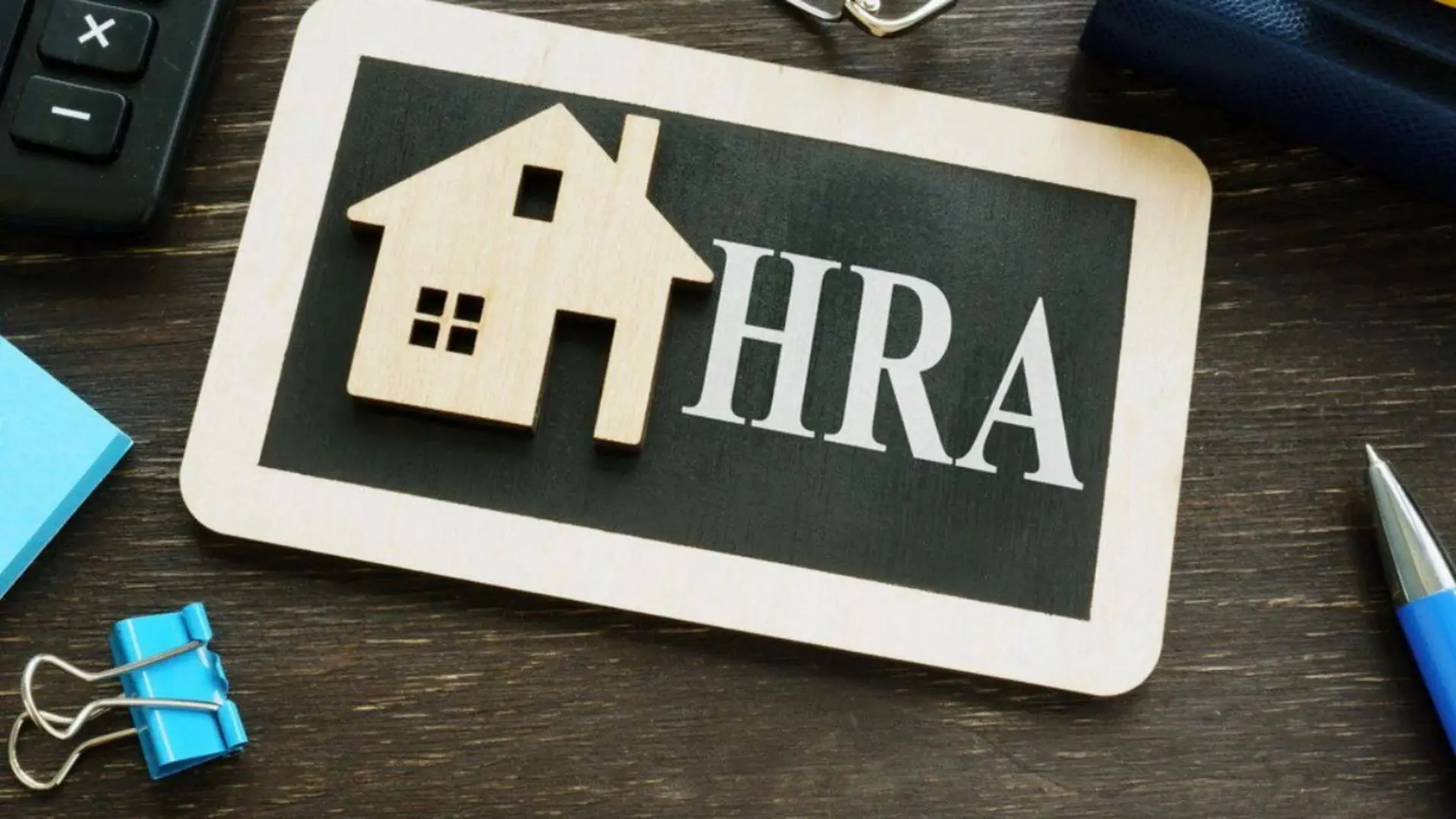Table of Content
▲- What is GST on Housing Society Maintenance?
- Key Conditions for GST Applicability
- Understanding the Threshold
- Historical Context and Recent Clarifications
- Kerala High Court Ruling and Its Implications
- Concerns Raised by Apartment Owners
- Expert Opinions on GST Applicability
- Practical Implications for Residents
- Recommendations for Apartment Owners
- The Road Ahead
GST (Goods and Services Tax) has simplified the indirect tax mechanism in India but there are still some elements, including how the GST deals with housing societies maintenance charges, that continue to puzzle apartment association owners. All of this confusion has led to a clarification of the rules by the Central Board of Indirect Taxes and Customs (CBIC) in recent weeks. Here is an extended explanation to allow apartment owners to explore and understand the nuances of the GST on housing society maintenance charges.
What is GST on Housing Society Maintenance?
GST is applicable to the services offered by Resident Welfare Associations (RWAs) or housing societies when prescribed under certain conditions. The maintenance fee is paid by apartment owners. Typically, services such as cleaning, security, or repairs are part of maintenance charges for apartments.
Also Read: State Governments Exempt Stamp Duty on Gift Deed Property Transfers Between Blood Relatives
Key Conditions for GST Applicability
The CBIC has clarified that GST on maintenance charges from the housing society is only applicable if:
1. Monthly Contribution is greater than ₹7,500 per unit:
GST applies if the prevailing rate of maintenance contribution exceeds ₹7,500.
2. Annual Turnover of the Housing Society is greater than ₹20 Lakh:
GST only applies if the total annual turnover from the housing society's total supply of goods and services exceeds ₹20 Lakh.
If both of the above apply, then GST would be charged at 18% of the entire maintenance charge and not just of the maintenance charge exceeding ₹7,500.
Understanding the Threshold
The ₹7,500 threshold was introduced in January 2018, revised from the earlier limit of ₹5,000. It provides some relief to smaller housing societies and residents with lower maintenance contributions. However, for societies where contributions exceed ₹7,500, the entire amount becomes taxable.
For instance, if a member pays ₹10,000 per month towards maintenance and the society’s turnover is over ₹20 lakh annually, GST will be applied to the full ₹10,000.
Historical Context and Recent Clarifications
The GST rules on housing society maintenance have been in place for several years. A notification issued by the Ministry of Finance in July 2019 confirmed the conditions for GST applicability. The recent CBIC clarification is a reiteration, emphasizing the rules to clear up confusion among residents.
Deepak Kumar Jain, founder of TaxManager.in, notes that these clarifications aim to ensure compliance without changing the existing taxation framework.
Kerala High Court Ruling and Its Implications
In April 2025, the Kerala High Court struck down a GST amendment from 2021 as unconstitutional. The amendment had sought to treat transactions between clubs or associations and their members as taxable supplies. The court found that under the Constitution a valid taxable transaction required the presence of two parties a supplier and a recipient.
Experts believe this ruling could impact how GST on housing society maintenance will be prosecuted. The ruling contested the applicability of the GST law to contributions from a member, but it seems inevitable that the issue will be settled at the Supreme Court.
Concerns Raised by Apartment Owners
Apartment owners across the country, particularly in metropolitan cities like Mumbai and Bengaluru, have expressed concerns about GST on housing society maintenance. Some of the common issues include:
1. Increased Financial Burden:
Many homeowners view the 18% GST as an additional expense, particularly for middle-class families already grappling with rising costs.
2. Transparency Issues:
Critics argue that the tax could encourage housing societies to rely on cash transactions, potentially reducing transparency and compliance.
3. Tax on Essential Services:
Residents point out that essential services like water and electricity are GST-exempt individually but become taxable when included in maintenance bills.
Expert Opinions on GST Applicability
Taxation specialists highlight that there is a continuing disagreement surrounding the concept of "supply" between the RWAs and members. In particular, the Kerala High Court ruling reinforced a principle of mutuality, finding that “supply” did not occur in this context. Conversely, the tax department continues to wrestle with the notion that member contributions are a taxable supply.
Harpreet Singh, partner at Deloitte, believes the matter will ultimately go to the Apex Court for a conclusive answer.
Also Read: Housing Price Index (HPI) - Meaning, Calculation & Trends 2025
Practical Implications for Residents
The GST rules could have a significant effect on monthly costs for residents of high-rise societies. Here are some things to remember:
- GST Applies to the Whole Amount: If your contribution is above ₹ 7,500 and the society qualifies for GST based on turnover, then all of the maintenance charge will be subject to GST.
- Annual Turnover: Societies with lower annual turnover are exempt, even if the contributions of individual residents are above ₹ 7,500.
- Transparency is Important: Residents should ensure that their housing society maintains reasonable transparency into the records of finances in order to prevent an issue with a Regulator.
Recommendations for Apartment Owners
To manage the effects of the GST on housing society maintenance charges, apartment owners can follow these steps:
- Stay updated on the rules: Keep up to date with the latest GST rules and clarifications to remain compliant.
- Take Action with RWAs: Get involved with the housing society meetings to discuss and/or raise concerns of GST.
- Get Expert Advice: Always engage with tax professionals or legal advisors on the issues that the GST has on your housing society.
- Advocate for Change: Become members of residents' associations and address exemptions or tweaks in the GST policy.
The Road Ahead
The issue of applying GST on housing society maintenance fees remains a topic of debate. While the rules are intended to clarify how tax liability would be collected, they also raise issues of fairness and residential payments. Recent legal developments such as the Kerala High Court to date maybe provide greater clarity; however, a final conclusion may take awhile.
In the meantime, owners should stay alert, their taxes are collected properly and advocate for tax policy collection equitably and transparently.
Follow AquireAcers Whatsapp Channel to Stay Updated With The Latest Real Estate News







_1770976628.webp)

_1771582392.webp)
_1771577585.webp)
Ans 1. GST is a tax applied to the services provided by housing societies or Resident Welfare Associations (RWAs), such as cleaning, security, or repairs, if certain conditions like turnover and monthly contribution thresholds are met.
Ans 2. GST applies if: The monthly contribution per unit exceeds ₹7,500. The annual turnover of the housing society exceeds ₹20 lakh. If both conditions are met, GST is charged at 18% on the entire maintenance amount.
Ans 3. Yes, if the maintenance exceeds ₹7,500 and the society's annual turnover is over ₹20 lakh, GST is charged on the entire maintenance amount, not just the portion exceeding ₹7,500.
Ans 4. Societies with an annual turnover of less than ₹20 lakh are exempt from GST, even if individual contributions exceed ₹7,500. Additionally, essential services like water and electricity, when billed separately, are GST-exempt.
Ans 5. The Kerala High Court ruled that transactions between housing societies and their members may not qualify as taxable supplies due to the principle of mutuality. This decision could influence the interpretation of GST rules but awaits a conclusive ruling from the Supreme Court.
Ans 6. Apartment owners can: Stay informed about GST rules and clarifications. Participate in housing society meetings to discuss financial transparency and GST implications. Seek advice from tax professionals. Advocate for changes to GST policies through resident associations.
Ans 7. Owners should ensure transparency by reviewing financial records of the housing society and, if needed, consult tax professionals or report concerns to the relevant authorities.
Ans 8. Apartment owners can ensure compliance by: Regularly monitoring the annual turnover of the housing society. Verifying that the GST collected is accurately reflected in the maintenance bills. Ensuring that the housing society files proper GST returns and maintains transparent records. Consulting with legal or tax professionals for guidance on GST-related matters.